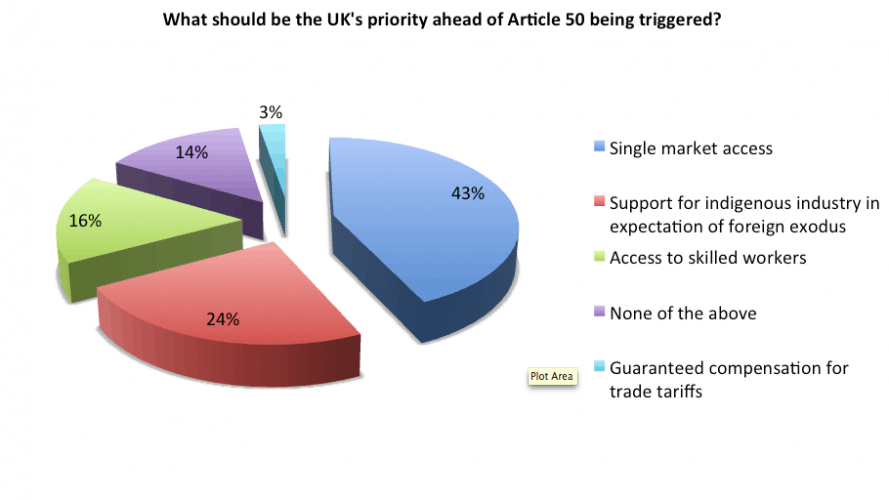At last week's Tory Conference, Prime Minster Theresa May confirmed that the government will trigger Article 50, the beginning of the formal two year process by which the UK leaves the EU, before the end of March 2017.
With the Brexit touchpaper now well and truly alight, we asked our readers what the priorities for industry should be.

Topping the poll at 43 per cent was single market access, something that is looking increasingly less likely as the 'hard Brexit' option gains momentum. A hard Brexit will in theory give the UK better control of its borders, but could also lead to a loss of inward investment. Almost a quarter of respondents (24 per cent) believe the government's priority should be to support indigenous industry, in preparation for the reduction in foreign direct investment that is anticipated.
Access to skilled workers was the next most popular option at 16 per cent. The UK has set out immigration control as its major priority, but has also been quick to point out that skilled labour will be welcomed where it is needed. However, it remains to be seen how the post-Brexit economic and political climate will affect the UK's ability to attract such labour.
Just three per cent of readers thought guaranteeing compensation for potential EU tariffs should be a priority, while 14 per cent voted 'none of the above'. It's a debate that is sure to roll on for many months to come, and one that we'll no doubt be returning to here. In the meantime, please feel free to add your thoughts in the comments section below.





Glasgow trial explores AR cues for autonomous road safety
They've ploughed into a few vulnerable road users in the past. Making that less likely will make it spectacularly easy to stop the traffic for...